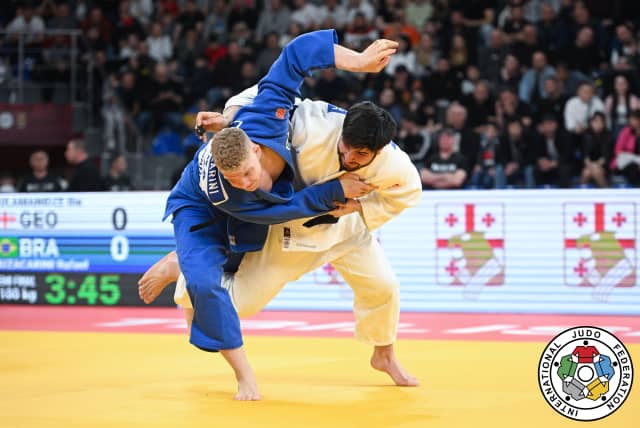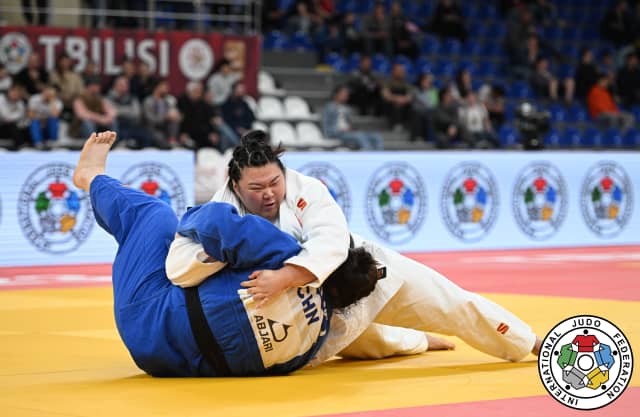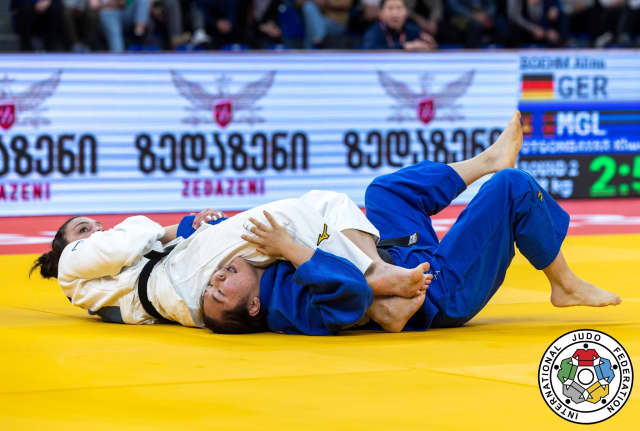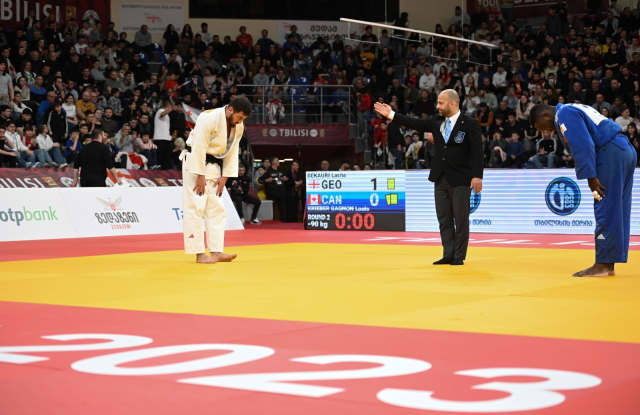In Tbilisi Mr Lascau holds the title of Head Referee Director and as such the buck stops with him! If there is anyone to ask for an analysis of the judo on display on day 3, it’s him, with a truly all-encompassing perspective and the interests of the whole sport at heart.
“It’s very nice, here in Georgia, to see a mix of strategies from the different national federations. The federations are confident already in many of their choices of candidates to go to the worlds and even perhaps the Olympic Games. Some are using the Tbilisi Grand Slam to decide their teams of two for the worlds but in some cases this can also be a key event for even Olympic selection, especially where the athletes are very close together on the ranking list and more than one may qualify. For example, at -100kg Brazil have two and the Chinese at +78kg also have two candidates. Of course the Georgians have 2-4 athletes per category here and with the highlight being the three at -90kg, including their Olympic champion from Tokyo.
I’m also very happy to see high quality transition from tachi-waza to ne-waza. There has been great use particularly of juji-gatame and okuri-eri-jime.
We have seen a great variety of techniques, including o-uchi-gaeshi, sukashi variations and even an unusual hane-maki-komi. We also note that the good size of judogi is contributing to the technical range that is possible and have seen uki-otoshi and sumi-otoshi well utilised, in part due to this. The use of te-waza has been impressive in some cases, especially in continuation when other techniques were applied to initiate movement.
I also observed the use of sankaku here, used for shime-waza, kansetsu-waza and osae-komi-waza. We just have to pay attention that the legs are always in a position that doesn’t put the neck at risk but today this was good. This was another successful transition technique and highlights the required level of versatility needed now at the top level.
One mention I must make is regarding the number of direct hansoku-make for day 3 as it was vastly reduced from days 1 and 2. Coaches and athletes are absorbing changes in emphasis well, not just in the lead up to events but in the immediate situation. Today was very positive in this regard.
In conclusion, I see that the federations are being very active to improve judo in line with the rules. Coaches are clearly more in line with the referees at this stage of the season. I can also see that if on the first day the bow was not committed to so well, we have seen the ethics here also improved through the tournament. This is a never-ending job because our athletes are in a continuous state of change, as is correct, but we must maintain high standards within our education systems to ensure that ethics and particularly respect is always at the top of our agenda.”
Day 3 has pleased everyone, Mr Lascau included. Sadly though, the Tbilisi Grand Slam is over for another year. It’s always explosive, always entertaining and always brings an indescribable spirit to the tatami. We can’t wait to come back, already!




